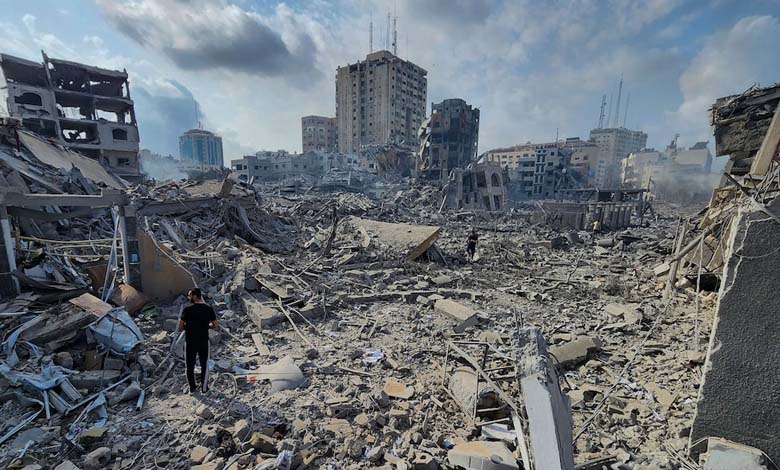Demolition policy and large-scale displacement: what is happening in Tulkarem?

Palestinians in the West Bank, especially those living in refugee camps, are facing extremely difficult conditions. Israel is implementing a strategy of “systematic demolition.”
In the refugee camps of Tulkarem and Nour Shams, families are hastily removing their furniture as the Israeli military threatens to demolish their homes.
Israeli authorities justify the demolitions on security grounds, but the reality is that these camps have been steadily emptied since the beginning of the year. Some observers see this as a targeted campaign against northern West Bank camps, including those in Jenin and Qalqilya.
The destruction in these camps is reminiscent of demolition operations in the Gaza Strip.
-
Gaza Latest: 31 Killed by Israeli Fire Near Aid Center
-
U.S. Proposal on Gaza on Hamas’ Table… Talk of a Possible Breakthrough
UN data
The UN Office for the Coordination of Humanitarian Affairs reports that over 100 residential buildings have already been destroyed in Tulkarem and Nour Shams. Between June 6 and 18, around 85 structures were razed in Tulkarem, while demolitions began in Nour Shams as early as May 5. Between June 20 and 22 alone, at least 22 buildings, comprising 56 housing units, were demolished.
All camps remain closed to residents and humanitarian actors, and the Israeli forces reportedly fire on anyone attempting to return. Troops have also seized Palestinian buildings for use as military posts or temporary interrogation centers.
-
Gaza Latest: Evacuation Orders in the North and Humanitarian Ship Intercepted at Sea
-
Gaza Foundation: Potential U.S. Funding Could Entangle Washington in Aid Chaos
Searches, seizures, evictions
Between June 13 and 23, the UN documented at least 32 incidents where Israeli soldiers occupied 243 homes – whether fully, partially, or rooftop use – for periods ranging from hours to days. In Tulkarem, 30 homes were taken over, displacing 193 people; in Jenin, 148 homes were occupied, displacing 785 individuals.
Tulkarem’s governor, Abdullah Kamal, stated that the military had notified residents of plans to demolish 104 additional houses in the camp, granting a 72‑hour window for objections or evacuation. He urged the international community, NGOs, and human rights institutions to intervene urgently to halt this scheme.
-
Arming and Funding… Is Israel Repeating the Lahad Army Experience in Gaza?
-
The Story of Two Grandchildren May Reopen the Genocide File in Gaza… Will France Take Action?
Mass displacement and everyday violence
Since the start of the year, over 40,000 Palestinians have been forced to leave their homes in the Jenin and Tulkarem camps, according to UN data. Many are sheltering in nearby towns, awaiting potential return.
The Israeli Association for Civil Rights (ACRI) denounces near‑daily military operations in densely populated civilian areas, including infrastructure destruction, water and electricity cuts, foul odors from exposed sewage, and severe restrictions on movement. Entire neighborhoods have reportedly been sealed off without formal evacuation orders.
-
Special Operation: Israel Announces Recovery of Two Hostages’ Bodies from Gaza
-
Latest Gaza News: 15 Killed While Waiting for Aid, Israel Acknowledges Incident
According to ACRI, these actions represent serious breaches of international humanitarian law, which forbids forced displacement of civilians from occupied territory except in exceptional and temporary circumstances. They constitute unlawful collective punishment and gross violations of human rights.
ACRI lawyer Hila Sharon highlighted that refugee camps have been turned into closed military zones experiencing systematic destruction and flagrant violations of basic rights, including access to water, electricity, housing, and freedom of movement.
-
Palestinian Political Analyst: The Occupation Is Deliberately Starving Gaza’s Children to Break the People’s Resilience
-
Hunger Precedes Aid: Food Warehouse Stormed in Gaza Amid Humanitarian Collapse
Palestinian presidency warns
Palestinian presidential spokesman Nabil Abu Rudeina warned that these mass demolitions threaten efforts toward a ceasefire in Gaza and an end to operations in the West Bank. He condemned the thousands of homes destroyed, the forced displacement of civilians, the terror inflicted upon them, and the ongoing killing and starvation in Gaza.












